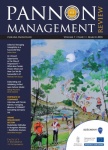7 / 1 (March 2018)
Archive issue
Archive issue

Author(s)  | Title  | Year  | |
|---|---|---|---|
  | Zoltán Veres | 2018 (7/1) | |
  | Nikoletta Tóth‑Kaszás | 2018 (7/1) | |
Abstract: Numberless researches and theories were born in the topic of project and project management during the last decades. However there is an area, which interpretation is different from the traditional approaches in several aspects: the definition and interpretation of tender projects has been less in the focus of researchers so far. In the first part of the study I am going to partly make up for this shortcoming; then I would like to underline the surprisingly important role of tender projects through the example of the higher education sector. My empirical research was focusing especially on the cross-border tender projects. I analysed the projects implemented in the frame of cross-border co-operation (CBC) programmes between 2007 and 2013. I had focused on the projects of the Hungary-Croatia, Slovenia-Hungary and Austria-Hungary CBC programmes and tried to identify the role of higher educational institutions. An intention of the study was to draw the attention to the appearance of higher education in the cross-border tender projects and based on the previous empirical researches to highlight the possible key of success. During the research I have concluded that seven factors contribute substantially to the success of cross-border projects. These are the role of the project manager, the consciousness of the project processes, the on the job type knowledge sharing, the competences deriving from the project manager personality, the learned competences of the project manager, his or her external motivation and internal motivation factors. As a lock-up of my essay I have conceived those steps, along which a higher educational institution can tread on the project management maturity path. | |||
  | György Péczely; Dario Liberona | 2018 (7/1) | |
Abstract: The interpretation of ‘lean production’ has been slowly shifting from technical to socio-technical aspects since its appearance. This is well illustrated by the growing number of expressions associated with lean like ‘lean management’ and ‘lean thinking’. Seeking more advanced and at the same time more successful ways of lean implementation, researchers and practitioners discovered that carefully adding human, behavioural, management, leadership and many other soft elements in the lean melting-pot, will most likely improve application results. Still, despite all the efforts made, the socio-technical definition of lean is still blurry, researcher-dependent and mostly not confirmed by evidence. This study introduces a unified, cultural definition of lean integrating the culture model of Schein and the lean model from Modig and Åhlström. It shows that lean could be interpreted in different abstraction levels, as basic underlying assumptions, espoused values, methods and tools, giving an interrelated definition for each. The study also presents the findings of an empirical quantitative questionnaire research verifying the ‘lean culture’ definition and identifying correlations between ‘lean culture’, corporate competitiveness and corporate characteristics, based on information from 193 participating Hungarian medium and large sized industrial companies. The data show that the underlying assumptions of lean culture named Objective waste elimination, System level rationalization and Vision is improvement are significantly correlated with the components of corporate competitiveness. The findings draw attention to the soft, cultural side of lean production implementation and give practical advice on methods how to shape and control the cultural aspects of the implementation process to improve the chances of success. | |||
  | Portraits of Companies | 2018 (7/1) | |
  | Dávid Máté Hargitai | 2018 (7/1) | |



